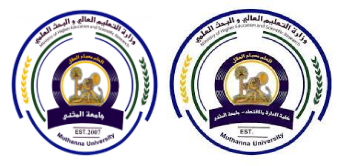راس المال الروحي: منظور معاصر لاستنهاض سلوك المواطنة التنظيمية: من خلال الدور الوسيط للملكية النفسية
- Post by: Muthanna mjdes
- ديسمبر 29, 2019
- Comments off
الملخص
سعى البحث الحالي الى اختبار رأس المال الروحي بابعاده (التقوى، الاخلاق، الابتكار والصحة) ودوره في استنهاض سلوك المواطنة التنظيمية من خلال الدور الوسيط للملكية النفسية لمجموعة من تدريسي كليات جامعة المثنى بلغ عددهم 159 تدريسي في مختلف التخصصات وبمختلف الالقاب العلمية. وكانت الاستبانة الاداة الرئيسة لجمع البيانات، وباستخدام مجموعة من التحليلات الاحصائية المتمثلة بالتحليل العاملي التوكيدي وتحليلات الانحدار باستعمال برنامج (AMOS v.23 & SPSS v.23) اختبرت فرضيات البحث الرئيسة. وقدم البحث الحالي مجموعة من الاستنتاجات اهما وجود علاقة بين رأس المال الروحي و سلوك المواطنة التنظيمية. اي ان الأفراد الروحانين هم أكثر ميلا إلى إظهار سلوك المواطنة التنظيمية التي تعمل على تعزيز رفاهية المنظمة. وقد يشمل ذلك قيام التدريسين بأنشطة تعود بالنفع على كلياتهم على الرغم من أنها لا ترتبط بوظائفهم ولا تعود عليهم بالاثر المادي. وهذا ما يجعل من رأس المال الروحي مؤشراً مهماً للتنبؤ بسلوك المواطنة التنظيمية. اما اهم التوصيات فكانت دعوة الجامعات العراقية ومؤسسات التعليم العالي ومنها جامعة المثنى وكلياتها عينة البحث الى ضرورة تبني الانشطة والممارسات المعززة للجوانب الروحية والنفسية التي يمكن ان تسهم في فاعلية المؤسسات التعليمية.
كمال كاظم الحسيني
جامعة المثنى/ كلية الادارة والاقتصاد
Spiritual Capital: A Contemporary Perspective for Stimulating Organizational Citizenship Behavior Through the Intermediate Role of Psychological Ownership
Kamal Kadhim AL-Hassany
Abstract
The current research sought to test spiritual capital dimensions (religiosity, ethics, creative and health) and its role in stimulating the behavior of organizational citizenship through the moderate role of the psychological ownership for a group of 159 faculty members at Al-Muthanna University faculties in various disciplines and various scientific titles. The questionnaire was the main tool for data collection, and using a set of statistical analyzes of confirmatory factor analysis and regression analyzes using the AMOS v.23 & SPSS v.23 program tested the main research hypotheses. The current research presented a set of conclusions, whether there is a relationship between spiritual capital and organizational citizenship behavior. In other words, spiritual individuals are more likely to exhibit organizational citizenship behavior that promotes the well-being of the organization. This may include training by teachers who benefit their faculties even though they are not related to their jobs and do not have any material impact. This makes spiritual capital an important predictor of the behavior of organizational citizenship. The most important recommendations were to invite Iraqi universities and institutions of higher education, including Al-Muthanna university and its colleges, to examine the need to adopt activities and practices that enhance spiritual and psychological aspects that can contribute to the effectiveness of educational institutions.
Keywords: Spiritual Capital, Psychological ownership, Organizational Citizenship Behavior.
….. تحميل الملف …..
